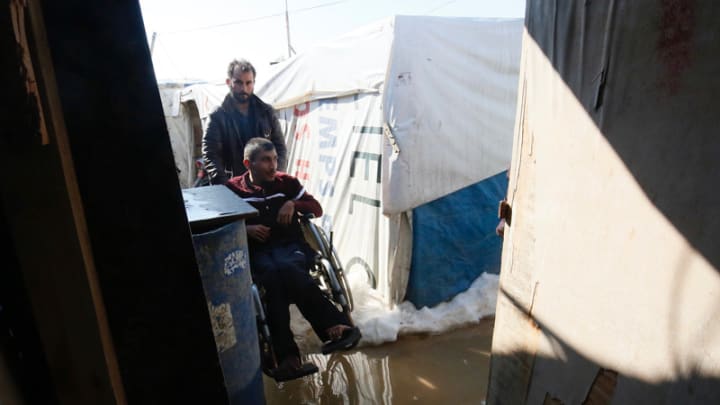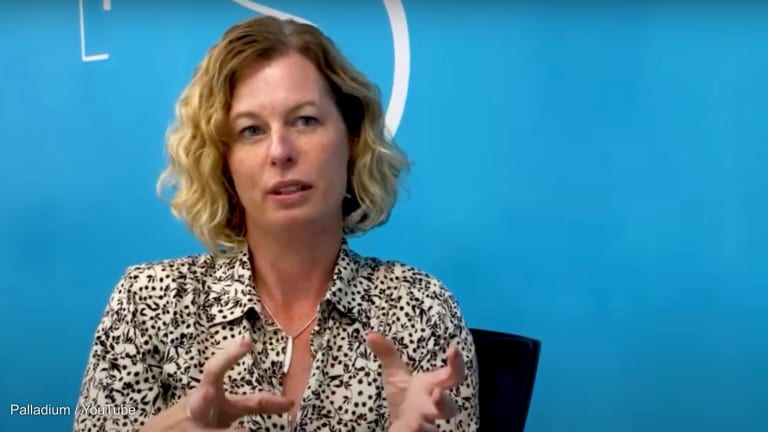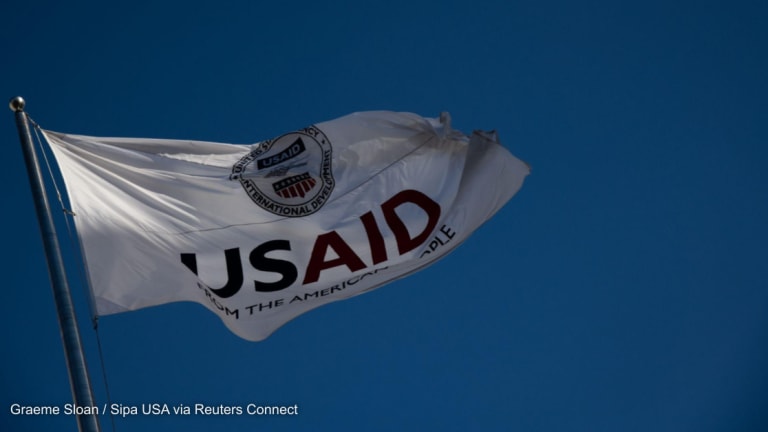
LONDON — The United Kingdom’s Department for International Development has a “considerable distance to go” if it is to make good on its pledge to center disability in its work, a U.K. aid watchdog has warned.
DFID has made disability and inclusion a key focus for U.K. aid, with Secretary of State Penny Mordaunt — a former disabilities minister — saying in her maiden speech in November that, “as a department, we will put disability at the heart of everything that we do.”
The U.K. is also set to host the first Global Disability Summit in London in July, co-hosted with the government of Kenya and the International Disability Alliance, to raise awareness and funds for disability-inclusive development.
See more related topics:
► Q&A: Penny Mordaunt on the urgent need for disability-inclusive development
► DFID meets with disability advocates on inclusive development
► Mordaunt to announce details of Global Disability Summit
► Q&A: Judy Heumann on how donors can drive disability-inclusive development
However, the Independent Commission for Aid Impact, the body that scrutinizes DFID spending, said the department is not doing enough to ensure its own programming is disability inclusive, and that its approach to mainstreaming disability is “too modest” to deliver “transformational results,” in a review released Wednesday.
While the review praised DFID for its leadership and commitments to research on disability inclusion, it said the department should increase its number of staff with disabilities, and involve disabled people's organizations more in the design of programs.
“DFID’s focus on disability is to be welcomed … However, this impressive ambition has yet to be matched by the strong tangible action needed, and until this happens, the U.K. will not be able to deliver fully for people with disabilities,” said Dr Alison Evans, ICAI’s chief commissioner.
A DFID spokesperson said the review is out of date and that work is already underway to address many of the concerns raised.
More than 1 in 6 people in developing countries lives with a disability, 10 percent of whom are children. Advocates say that, despite the inclusion of disability rights in the Sustainable Development agenda, many people with disabilities, especially women, remain unable to access social services including health and education, and remain trapped in a cycle of poverty.
Members of the disability and development group run by Bond, the network of U.K. aid organizations, agreed with the review’s findings and said the report came at a “crucial moment” for the movement, with the Sustainable Development Goals adding momentum through the pledge to “leave no one behind.”
In a statement, Hannah Loryman, Lucy Drescher, and Tamsin Langford, co-chairs of the Bond group, said: “We share ICAI's concern that there has not been a systematic inclusion of the concerns and challenges faced by people with disabilities in [DFID’s] own programming. We also echo ICAI's recommendation that disabled people's organizations must be at the heart of all development programming.”
Ola Abu Alghaib, director of Global Influencing and Research at Leonard Cheshire Disability, said: “DFID’s secretary of state has provided clear intent to put disability at the heart of their efforts, in particular filling key data gaps — an issue we have highlighted as being essential for lasting change.”
She added that “the U.K. has been central in efforts towards realizing worldwide disability-related Sustainable Development Goals.”
The ICAI review aimed to assess whether DFID has taken an “appropriate approach” toward achieving its goal of ensuring “people with disabilities are systematically and consistently included in and benefit from international development,” as outlined in the DFID disability framework, which was last revised in 2015. The framework was a response to a 2014 report by the International Development Committee, the parliamentary group that oversees U.K. aid spending, which called on DFID to do more to include people with disabilities in its programming.
The review made six recommendations, including calling on DFID to adopt a “visible and systematic plan for mainstreaming disability inclusion, with firm commitments and actions regarding programming, human resourcing, learning, and organizational culture.” ICAI also recommended that DFID take on more staff with disabilities, and those with “significant previous experience” working on disability inclusion. In addition, it called for country offices to develop “theories of change” around how to influence national governments on the agenda.
The department should work more closely with local disabled people’s organizations around the design of programs, as well as through joint advocacy to government, the review states; and it should increase work on tackling the stigma and discrimination experienced by people with disabilities of all kinds.
DFID will submit an official response within the next six weeks, but a spokesperson for the department said: “The international development secretary has been clear that disability must be at the heart of U.K. aid and embedded throughout all of DFID’s policy decisions. The report rightly praises the department's leadership on this issue internationally.”
“Much work has taken place or is already in motion to address the concerns highlighted in the report. The review was carried out at the same time as DFID began increasing its disability inclusion work and so does not fully reflect the latest position.”




